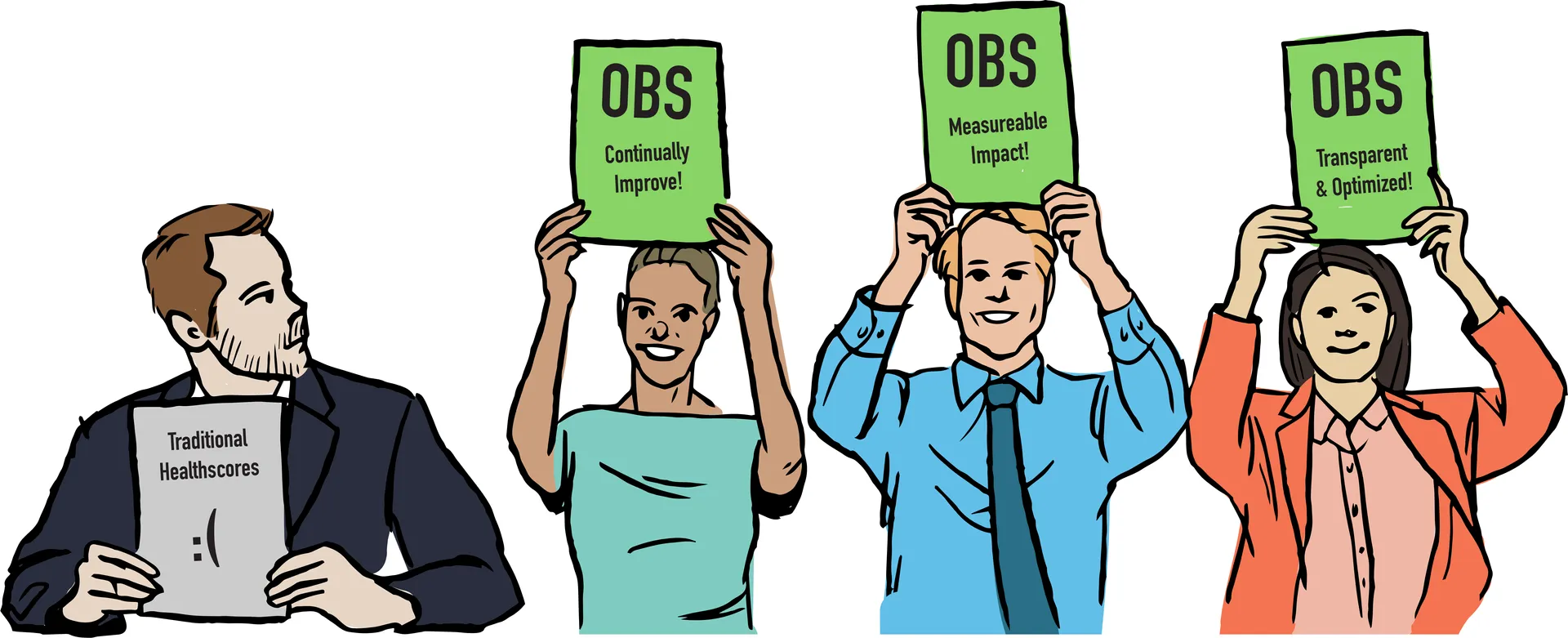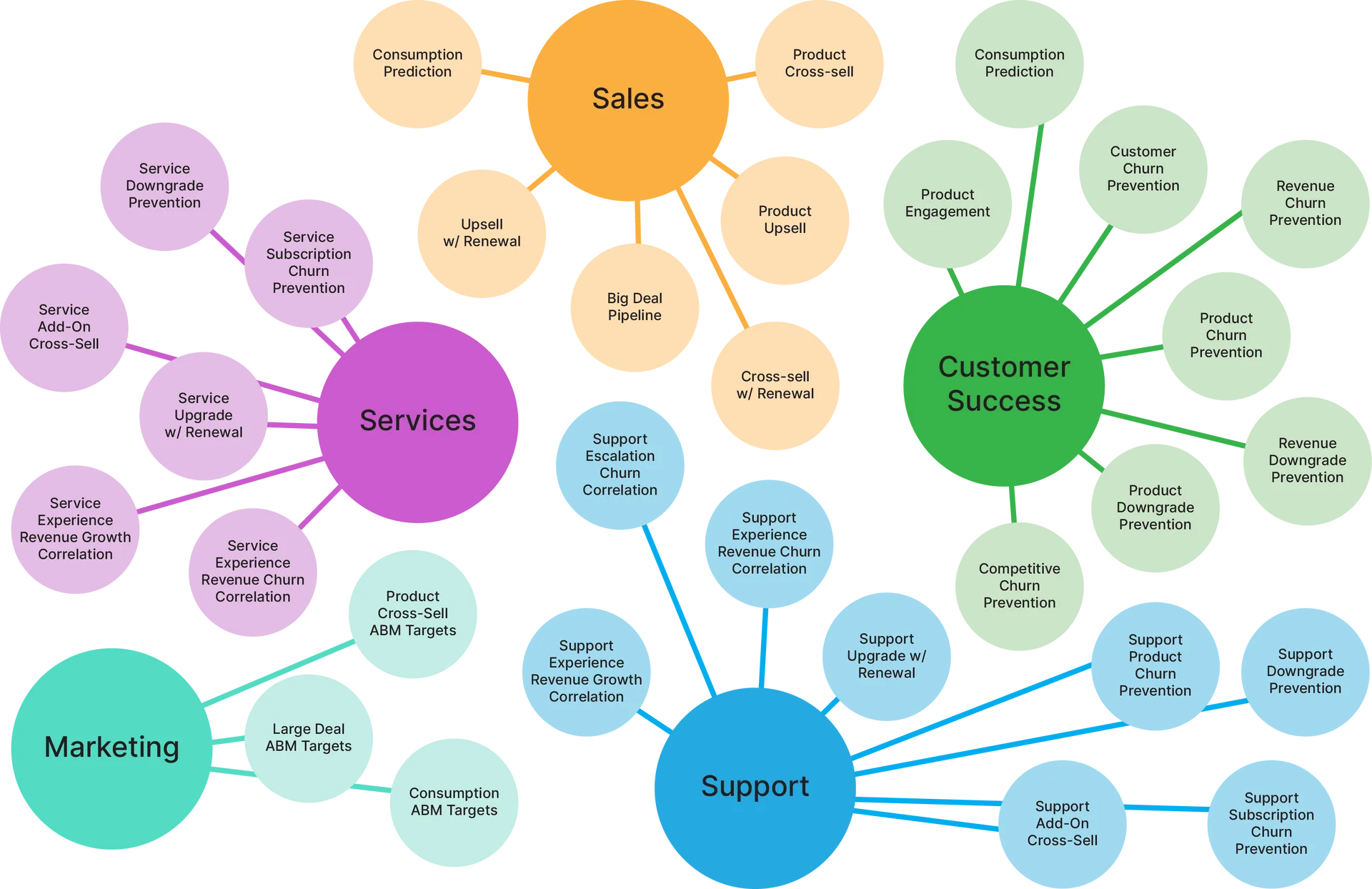
If you’re relying on a general health score to run your business, you’re leaving substantial retention and growth revenue on the table. In the world of Customer Success, Account Management, Support, and Services, traditional health scores have long been the go-to metric for assessing customer relationships. We’ve all used them. Sometimes successfully, and other times, with mixed results. These conventional metrics often fall short. Not due to lack of intent, but because their broad strokes fail to paint the detailed picture needed to drive specific actions and outcomes.
Why are Traditional Health Scores Dead?
As a seasoned CS leader, I've grappled with the shortcomings of traditional health scores more times than I can count. While they seem promising on paper, they often struggle with:
Accuracy: Are "green" customers truly never churning? Are "red" customers always at risk?
Actionability: A general health score of 62 doesn't inherently tell you what actions to take.
Impact Measurement: How do we know if our interventions actually made a difference?
While traditional health scores may have a time and place, the industry is quickly evolving to ML-powered Outcome-Based Scoring.
What is Reef’s Outcome-Based Scoring?
At Reef, we've pioneered a more nuanced approach that aligns closely with driving specific revenue outcomes: Outcome-Based Scoring (OBS). This method represents a shift from a generalized score to multiple, highly tuned ML-powered scores tailored to specific challenges and opportunities within customer management from churn mitigation to growth.
Instead of relying on one holistic score that attempts to do too much, we're developing targeted scores backed by data science and tied to specific revenue outcomes. It's like having a suite of specialized tools instead of a one-size-fits-all approach.
What are Some Outcome-Based Scores in Action?
Our data scientists are constantly experimenting with different machine learning models to optimize for each revenue outcome. Let's dive deeper into three examples:
Big Deal Finder: Reef analyzes your best customer expansions over the recent past to identify common traits among customers who expanded. Based on these learnings, Reef isolates current customers who share these traits and are likely to produce more growth pipeline that converts at a higher rate and closes at a higher rate for a higher sales price. Reef feeds targeted leads to Sales and CSMs and delivers ABM targets to Marketing.
Churn Predictor: While many companies have moved towards churn prediction models, Reef automates recommendation delivery, keeps the model up-to-date, and continuously improves the model over time. It provides CSMs and Renewal Managers early warnings about potential churn, allowing for preemptive action.
Product Downgrade Blocker: Some companies don’t have a full churn problem, but struggle with partial churn or downgrades of specific products. Reef can optimize a model to predict these downgrades and alert the right team member 6-9 months in advance of renewal, while there’s still time to change the outcome.

What Makes Reef’s Outcome-Based Scoring Approach Better?
Some of the core benefits of Reef's Outcome-Based Scoring approach include:
The models continuously improve through feedback loops and model stacking
There is a measurable impact of actioning Reef's recommendations
Scores are transparent and optimized for your unique business
How can I continuously Improve Customer Scores
Reef aggregates data from multiple sources - CRM, product usage, support tickets, and more - to create a holistic view of your customer landscape and predict outcomes with increasing accuracy.
With each model, we introduce feedback loops to naturally improve the scores over time. Each model score alerts your team with recommendation and actions which, based on input from your teams, feed back into the model. These inputs - was the recommendation accepted, what actions took place, and what was the resulting revenue impact - are all taken into the model to improve the score’s accuracy and effectiveness over time.
As we introduce additional models, each model improves the data set, becomes more accurate, and improves the performance of other models.
How can I Quantify Individual and Team Impact?
One of the biggest challenges for CS leaders is quantifying the impact of their team. A compelling benefit of Outcome Based Scoring is the ability to track the revenue impact and ROI on any outcome-based score. Reef benchmarks the performance of any target revenue outcome and:
Creates an optimized score
Sends recommendations to improve the outcome
Measures and reports performance versus the benchmark
Impact and ROI can be viewed for playbooks, individual team members, or the team as a whole. This data-driven approach provides a credible case for headcount requests and demonstrates the value of CS to the organization.
Aren’t there other ML-based Scoring Tools on the Market?
There are tools you can plug into your customer data that will analyze product usage or engagement and feed recommendations. These tools can be useful but they’re quite limited when compared to outcome-based scoring for the following reasons:
Avoid “black box” scoring. Reef’s outcome-based scores are transparent. When Reef delivers an outcome-based score, you can see what factors are considered in the score, you can view the accuracy and performance of the score, and you can see the correlation of each factor in the score to the target revenue outcome.
Avoid “one size fits all” scores. OBS incorporates the unique aspects of your business. Every Reef customer is unique from their industry to the products they sell to seasonality in their business. Reef models are flexible and can incorporate and test unique product features and even custom data points that you want to evaluate for churn or growth correlation.
✨ BONUS: How can I Prepare for the AI-Driven Future?
While outcome-based scoring delivers immediate value through machine learning, it also prepares your data for the next frontier: Enterprise Generative AI.
By consolidating, aggregating, and normalizing your data plus creating robust history on all Reef-connected data, we're setting the stage for a future where AI can provide profound insights into your customer data in seconds.
Imagine asking, "I have a $1.5M gap next quarter. Who are the best customers to target and the best actions to close that gap?" and getting an immediate, actionable, data-driven answer. That's the future we're building towards by structuring your data into a longitudinal format ready for generative AI use cases.
Getting Started with Outcome-Based Scoring
An advantage of outcome-based scores is that you can start small and grow as you go. Simply identify a revenue outcome you want to improve, start with a single score, measure incremental revenue and ROI, and then add more as you see proof. Every model pays for itself many times over. Reef’s outcome-based scores support over 30 use-cases across multiple GTM functions.

Customer Success | Sales | Support | Services | Marketing |
|---|---|---|---|---|
Customer Success | Product cross-sell | Support subscription churn prevention | Service subscription churn prevention | Product cross-sell ABM targets |
Product churn prevention | Product upsell | Support downgrade prevention | Service downgrade prevention | Large deal ABM targets |
Revenue churn prevention | Big deal pipeline | Support product churn prevention | Service add-on cross-sell | Consumption ABM targets |
Product downgrade prevention | Cross-sell with renewal | Support add-on cross-sell | Service upgrade with renewal | |
Revenue downgrade prevention | Upsell with renewal | Support upgrade with renewal | Services experience revenue growth correlation | |
Competitive churn prevention | Consumption prediction | Support experience revenue churn correlation | Services experience revenue churn correlation | |
Consumption prediction | Support experience revenue growth correlation | |||
Product engagement | Support escalation churn correlation |
If you're curious to learn more, let's connect! 🪸


